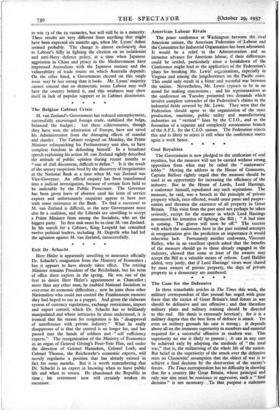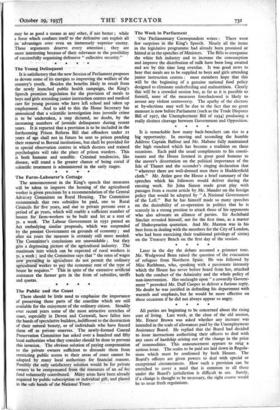The Case for the Defensive In three remarkable articles in
The. Times this week, the military correspondent of that journal has urged with great force that the tactics of Great Britain's land forces in war should be defensive and not offensive ; and that therefore military plans and military training should be directed to this end. His thesis is extremely heretical ; for it is a military dogma that the best form of defence is attack. Yet even on military grounds his- case is strong ; it depends above all on the immense superiority in numbers and material required for a successful offensive in modern war.. This superiority no one is likely to possess ; it can in any case be achieved only by adopting the methods of " the total war," that is, the militarising of the whole life of the nation. But belief in the superiority of the attack over the defensive rests on Clausewitz' assumption that the object of war is to achieve a final decision by the destruction of the enemy's forces. The Times correspondent has no difficulty in showing that for a country like Great Britain, whose principal and only war aim must be resistance to aggression, such a " final decision " is not necessary. To that purpose a stalemate may be as good a means as any other, if not better ; while a force which confines-itself to the- defensive can exploit all its ' advantages over even -an immensely superior- enemy. These arguments deserve every attention ; they are more interesting because of their relevance to the possibility of successfully organising defensive " collective security."



























































 Previous page
Previous page